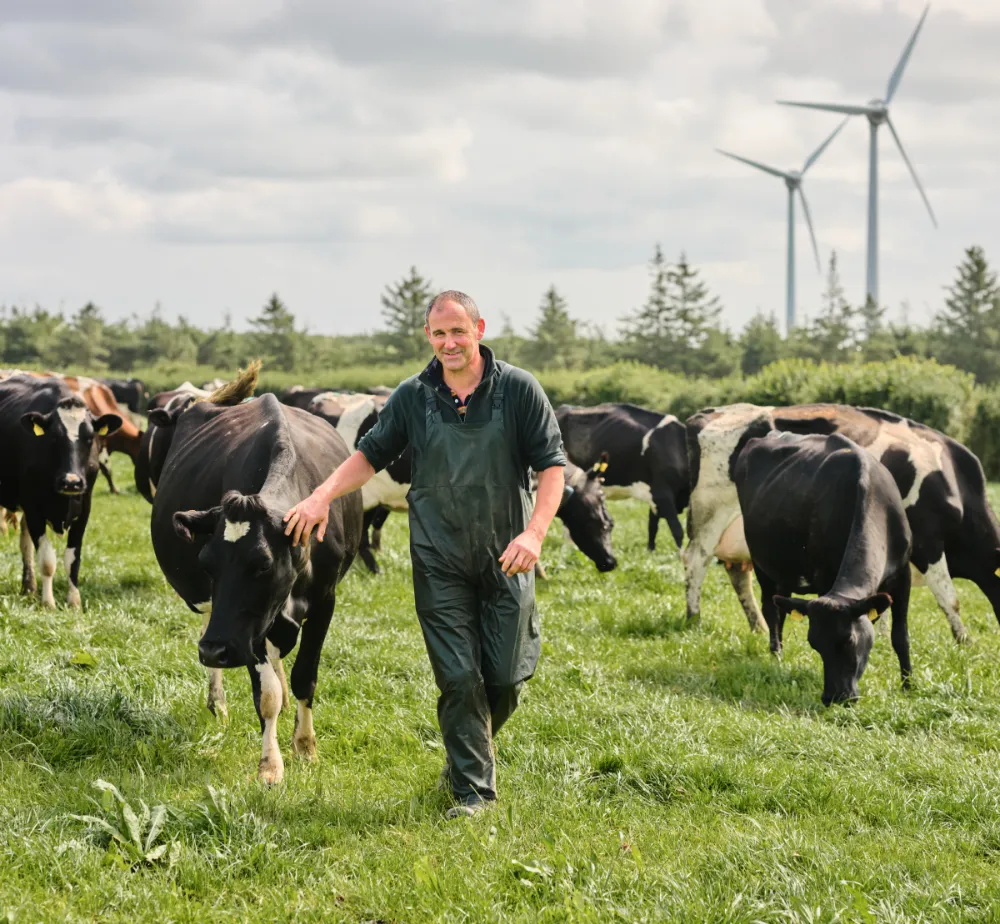About Chris Tucker
Chris is a fourth-generation dairy farmer, his family have been Duchy of Cornwall tenants since 1871. He farms in partnership with his wife Tory at Arrallas, on the edge of a beautiful, wooded valley near Ladock, Truro. The farm is family run and they have been joined by son’s Dan and Henry and Toby along with his partner Emily.
Arrallas is 680 acres and grows mainly grass. The herd of 400 cows typically graze from the end of February through to the end of November and are only housed for the winter months.
Why they like to work at Trewithen
Chris has been supplying Trewithen for nearly eight years and is proud to supply Cornish milk to a local Cornish Dairy which supports the farmers and has a strong sense of family.
Main Cow Breed
The girls are cross breed’s typically British and Irish Friesian. They have been bred to produce milk from grazing grass.
Favourite Cow
Depends who you ask! Chris’s favourite cow is Mandy, one of the few red cows in the herd. The cow that has the most attention, however, is ‘Forty-Two’. She likes sweets, will let you ride on her back, she is very tame, doesn’t always want to leave the milking parlour, likes the company of people and will search pockets for food!
Their regen journey so far
Chris is involved in regenerative farming to enhance the health of the soil and cows, to increase the biodiversity on the farm and make it more resilient to climate change in the future.
This year their grass has been oversewn with a blend of herbs and clovers to create Herbal Ley’s. These are important to improve soil health, the deeper rooting species add drought tolerance, the clovers fix their own nitrogen and should lead to a reduced need for artificial fertilizer, they also have benefits to the health of the cows.
The miles of hedgerow they have on the farm are being left to a more natural state for wildlife biodiversity and are only being trimmed one year in three.
